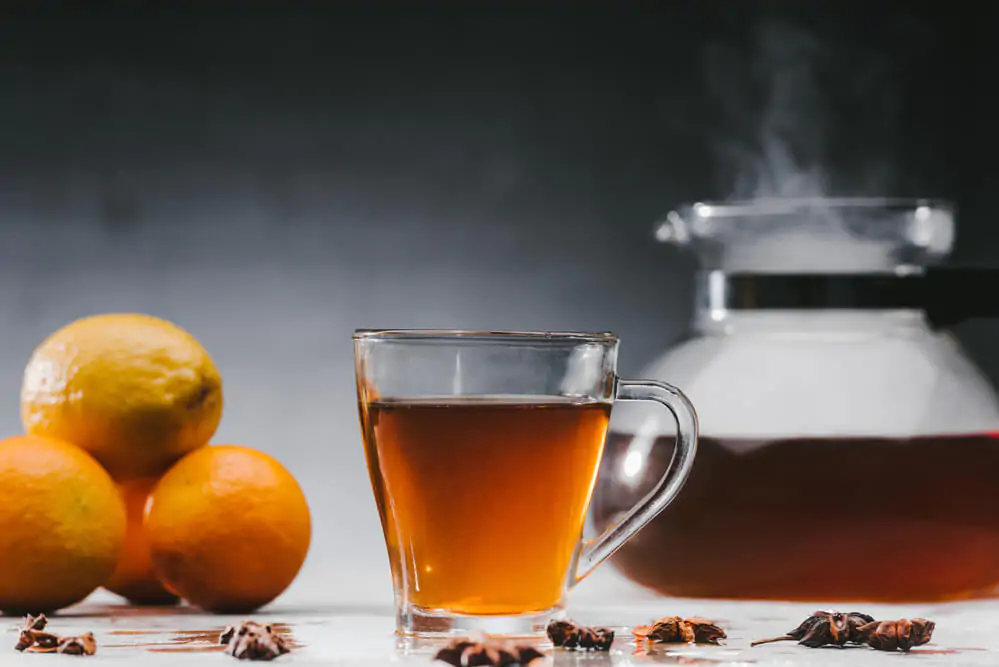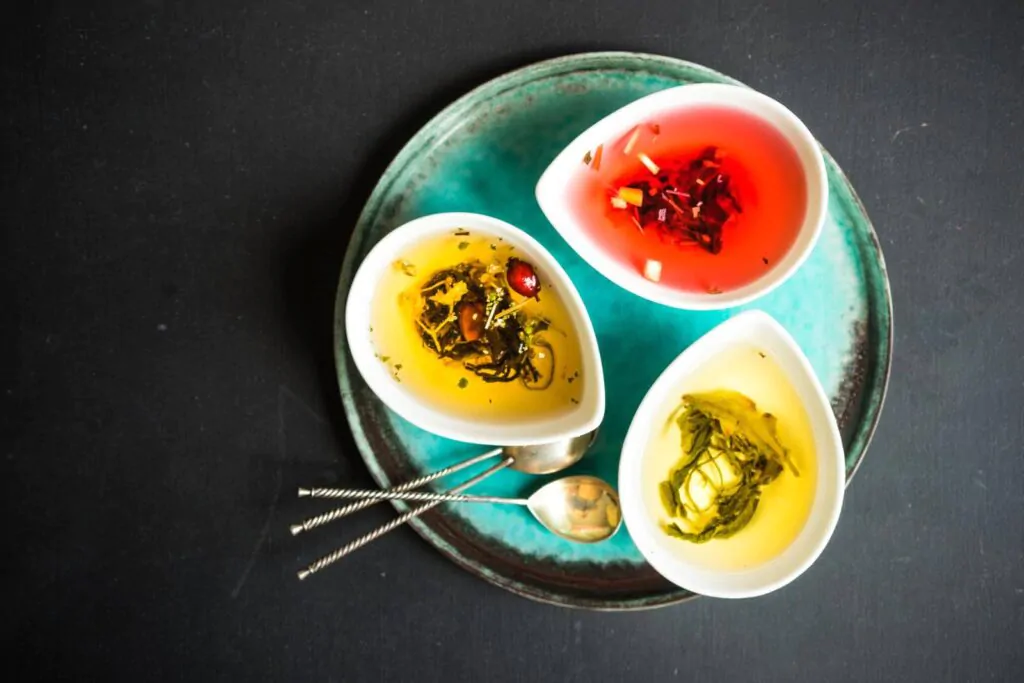While this popular brew – black tea – has many proven health benefits, is black tea hydrating? Keep reading to find out.

Many people claim tea can cause dehydration. So, is black tea hydrating? The short answer is yes — black tea hydrates and helps deliver water to your body.
Black tea is simply an infused water that may be served hot or cold and offers many health benefits. Not only does it hydrate the body, but it also stimulates the kidneys, which improves the ability of the organ to drain fluid and reduce fluid retention.
How Does Water And Tea Compare?
Caffeinated teas may act as diuretics, but since they have little caffeine, the diuretic effect is negligible. Studies have shown that caffeine doesn’t have a diuretic effect until approximately 500 mg and over is consumed in one day. This is equivalent to between 11 and 18 cups of tea in one day – excluding naturally decaffeinated herbal teas.
Black Tea Caffeine Content
All tea blends except for herbal tea or any caffeine-free teas have caffeine. Tea leaves contain a small amount of caffeine. They do not have nearly as much caffeine as coffee; however, it is still significant — a cup of coffee contains about 100 mg of caffeine, whereas a cup of tea contains about 30 or 40 mg.
Caffeine is a diuretic, a substance that causes the kidneys to make more urine to help the body get rid of extra fluid and salt. Some people used to believe that the diuretic effect of caffeine in tea counterbalanced the hydration — in other words, drinking tea caused you to urinate more water than you absorbed by your body.
Thankfully, that is not the case. Tea is a drink with a low caffeine content, so the diuretic effect is minimal. Tea provides you with much more water than it causes you to lose. As a result, drinking hot or iced tea helps to hydrate your body as a whole.
What Makes Tea Hydrating?
Tea is made with water. Although caffeine has somewhat of a diuretic effect, the caffeine in tea will not have much effect. You can use decaffeinated tea to meet your hydration goals as it can hydrate you just as much as a glass of water.
Is Coffee Or Tea More Hydrating?
Tea is better than coffee when it comes to hydrating the body since it has lower caffeine content. However, decaffeinated coffee and teas are almost caffeine-free, so these two are equally hydrating. You may also be interested in reading our guide on tea vs. coffee for weight loss.
How Hydrating Are Other Types Of Tea?

It is worth noting that how long you steep your tea will determine the caffeine content. Here is the caffeine content of the most popular teas:
Decaffeinated tea
Decaffeinated tea is made from tea leaves, but it is almost caffeine-free. It contains only two mg of caffeine per cup.
Green Tea
Green tea contains about half as much caffeine as black tea; 28 mg in a cup. It’s not as hydrating as water or herbal tea, but is better than coffee and black tea.
Herbal Tea
Herbal tea is not a true tea, meaning it does not come from the Camellia sinensis, but instead from leaves, roots, flowers, or seeds of other plants. Herbal tea naturally contains no caffeine.
White Tea
A cup of white tea will have around 32 to 37 mg of caffeine, which is more than green tea but still less than black tea. You may also be interested in reading our guide on how many calories are in a cup of coffee.
Tea Nutrition Facts
No matter what type of tea you brew, you will find they are low in calories. According to the United States Department of Agriculture (USDA), green tea, black tea, and black decaffeinated tea contain only two calories per cup. In addition, tea contains small amounts of vitamins, minerals, and antioxidants.
Just remember that what you put in your teacup counts, too. So, if you like your tea with sugar, honey, or cream, keep track of how much you use because the calories, fat, and sugar from these additions may quickly add up. It is also worth noting that, while brewed tea is extremely low in calories, tea products such as sweetened or bottled iced tea are usually not.
Tea Health Benefits
Tea has a lot of potential health benefits. To name one, green tea is a source of compounds known as flavonoids, which may help lower “bad” cholesterol, blood pressure, and triglyceride levels. Studies have shown that regular green tea and coffee consumption may reduce mortality risk in people who have type 2 diabetes.

Likewise, a study found that consuming black tea can help lower systolic and diastolic blood pressure, which are important indicators of heart health and general well-being. Anecdotally, some people find they’re more creative with a cup of tea. You might also be interested in reading our guide on black tea hydrating.
